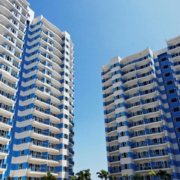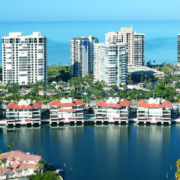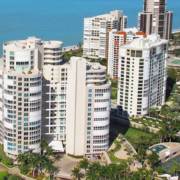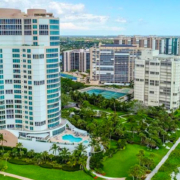Appropriate vehicle and parking rules for your community
A condominium or residential neighborhood can suffer detrimental effects to property values and the well-being of its residents if it does not have in place rules concerning residents’ and guests’ vehicles that the majority of the members in a community want. Condominiums have a limited number of parking spaces, and many newer gated communities have smaller front yards with limited driveway space and narrow streets.
If the number and types of vehicles permitted and locations where they can be parked is not controlled, a neighborhood can start looking like a used car lot.
For condominiums, you usually want to limit permanent residents’ vehicles to no more than two (2) and you may want to have assigned owner and guest parking spaces. Many times such assignments can be memorialized in the public records of the county so that owners know for sure what parking space or spaces are assigned to their unit. You may want to require residents and guest to register their vehicles with the association to make sure they are supposed to be there and you may even want to issue parking decals.
To protect the aesthetics in neighborhoods, you may want to have a rule that says owners must only use garages for the purpose of parking owners’ vehicles in the number of stalls the garages were intended for in order to prevent garages from becomes unsightly storage units. You can require that vehicles be parked in the garages (with a requirement that the garage doors remain closed when not in use) before vehicles can be parked in the driveways.
You may want to prohibit certain vehicles on the property (unless they can be kept in a closed garage hidden from view) such as recreational vehicles, boats, trailers, non-street licensed vehicles, motorcycles, panel vans, commercial vehicles not actively servicing the residence, inoperable, unlicensed, wrecked or vehicles obnoxious to the eye.
Although some communities prohibit trucks, because many people now have nice trucks as their main vehicle, you may wish to allow non-commercial trucks. You can distinguish between commercial trucks and trucks used like cars and allow trucks that are not used for a commercial purpose or have commercial markings on them. You could prohibit trucks from having tool boxes or commercial equipment in their beds as such would convert them into commercial trucks.
Last, you may want to adopt rules to prevent people from parking on the street (such street parking can prevent emergency vehicles from timely getting to those in need), on the grass or across the sidewalks in the neighborhood.
As people in condominiums and newer neighborhoods typically live closer together than in traditional neighborhoods on unincorporated county or city streets, it is important that vehicle restrictions are adopted and enforced to preserve and enhance the atmosphere of where the residents call their home. If your community is starting to look like that used car lot, maybe it is time to review whatever vehicle and parking rules are on the books and see if they need to be tweaked or just enforced.
If you are going to change or add new vehicle and parking restrictions, you will probably need to get a membership vote to approve amendments to your association’s governing documents to make them effective. Enforcement of vehicle and parking restrictions is not that difficult today with the proactive towing Statutes of Florida and remedies available through the courts.




